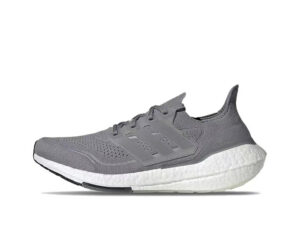The weight and flexibility of a shoe can significantly impact comfort, and their effects are interconnected:
- Weight:
- Impact on Comfort: Heavier shoes might lead to a sense of fatigue during extended wear, especially in activities like running or walking long distances. Lighter shoes can often provide a more comfortable experience, reducing the feeling of heaviness or burden on the feet.
- Mobility and Agility: Lighter shoes can enhance agility and ease of movement, contributing to a more comfortable experience, especially in activities that involve swift or agile footwork.
- Flexibility:
- Foot Movement: A shoe’s flexibility allows natural foot movement. A shoe that flexes easily at the forefoot and midfoot can offer a more natural and comfortable stride, reducing strain and potential discomfort during movement.
- Adaptability: Flexible shoes adapt better to the foot’s natural contours, providing a more customized and comfortable fit. They accommodate the foot’s movements, reducing potential pressure points or friction that might cause discomfort.
The ideal balance between weight and flexibility varies based on individual preferences and the intended use of the shoe. For instance, in running shoes like the Ultra Boost 20, a balance between lightweight construction and sufficient cushioning/support contributes to a comfortable running experience. Flexibility plays a role in allowing the foot to move naturally, China ULTRA BOOST21 suppliers enhancing comfort during dynamic activities. Overall, finding a shoe with the right balance of weight and flexibility can contribute significantly to overall comfort during wear.
Do the shoes provide good arch support? How does arch support affect shoe comfort?
The Ultra Boost 20 and similar models generally offer moderate arch support, but the level of arch support can vary among individuals and their specific foot anatomy.
Impact of Arch Support on Comfort:
- Alignment: Adequate arch support helps maintain proper alignment of the foot, reducing strain on the muscles, tendons, and ligaments. This alignment can contribute to overall comfort, especially during extended wear or activities.
- Distribution of Pressure: Proper arch support helps distribute weight and pressure more evenly across the foot, preventing excessive stress on specific areas. This can reduce discomfort, especially for individuals with high or low arches.
- Reduced Fatigue: Good arch support can alleviate fatigue by supporting the natural contours of the foot and preventing overpronation (flat feet) or excessive supination (high arches), which can lead to discomfort during prolonged wear.
However, the perception of what constitutes “good” arch support can differ from person to person. Some individuals with specific arch shapes or foot conditions might find the arch support in the Ultra Boost 20 sufficient, while others may require additional support through customized insoles or orthotics for optimal comfort.
